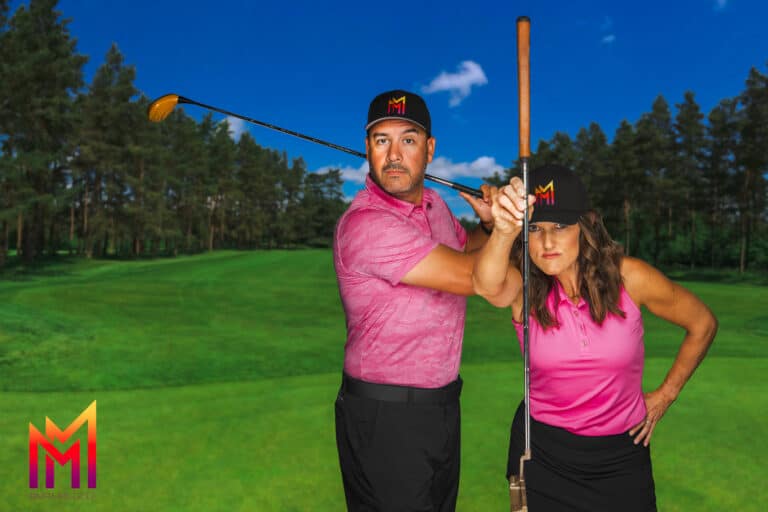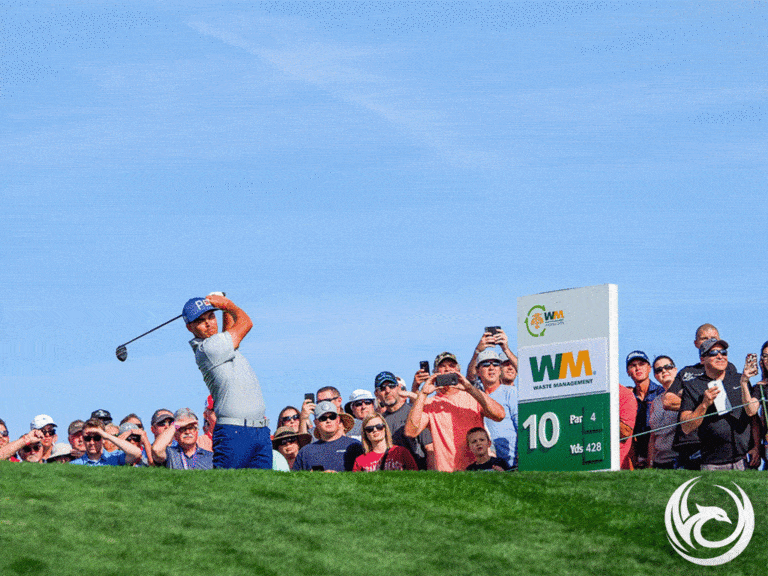2022 New Year’s Resolutions For Golf
There are countless studies that show people who make resolutions fail at them. From what I’ve read and from my own experience it’s because people set too many New Year’s Resolutions. ‘They’ say when you make New Year’s Resolutions that you should write them down, declare them, share your goals with others, so here we go:
• I resolve to improve my overall health and golf fitness.
• I resolve to take a lesson before buying new equipment.
• I resolve to practice with intention.
Back in September 2021, I had back surgery just as I was getting back into playing golf, ugh! I wrote about it and did a little video here. I think I’m too young to have had back surgery and that’s my own fault for letting my health and fitness not have priority in my life. I’ll still eat cookies, drink wine, and cook with butter but I’ll just have to balance my diet better and start working out again. I used to be a competitive cyclist. I used to be a competitive golfer. I used to weigh my food. I used to work out 6-7 days a week. I used to be super fit. Blah, blah, blah. There’s a lot of “used to be” which makes me sound like Al Bundy bragging about the glory days at Polk High (even me mentioning that shows my age, lol!)
I resolve to improve my overall health and golf fitness.
After my back surgery, my first Physical Therapist affectionately called me ‘Medically Compromised” not to shame me but rather to remind me that improving my fitness, cycling, playing golf safely and competitively was going to need some more careful planning, “Don’t just pick any trainer” he said. So it was a necessity to find a PT and Fitness Trainer that understood golf fitness and what that can do to a body if not done correctly. Personal training is a tricky realm because there isn’t a real certification or rather there really aren’t any laws that require trainers to be certified, like the rest of the medical profession or even in the financial realm.
I know I’m not a professional golfer and may never be but even before my back surgery, I researched spine surgeons that understood golf, why? Because it’s something I wanted to enjoy again, safely, and if my back can safely hold up to that, then it can safely hold up to many other activities in life. My first thought was to find someone through the Titleist Performance Institue aka TPI
Since its inception in 2003, TPI has studied thousands of golfers ranging from the top professional Tour players to weekend enthusiasts. An incredible amount of data on players of all shapes, sizes, ages, and fitness levels has been gathered during this time. Using this data, TPI discovered how a properly functioning body allows a player to swing a golf club in the most efficient way possible. Additionally, TPI has analyzed how physical limitations in a player’s body can adversely affect the golf swing and potentially lead to injury.
TPI’s mission is to educate golfers and industry professionals on the Body-Swing Connection™ through its one of a kind ‘TPI Certified’ educational program. This program was developed by founders Dr. Greg Rose and Dave Phillips along with a 52 member advisory staff of industry leading experts. Five unique fields of study are offered for TPI Certification: Golf, Medical, Fitness, Power and Junior Development. Currently, there are over 19,000 TPI Certified professionals in 63 countries assisting players of all skill levels. Use this site to find a TPI Certified pro near you.
And that’s how I found and started working with Nick with Higher Ground Performance. Nick started with evaluating my baseline body measurements, the ability of my body to move, my fitness, and then creating a plan to improve from there, safely and for long-term health.
I resolve to take a lesson before buying new equipment.
Ah crap, this is going to be a tough one for me. As a former certified golf club builder, club fitter, and golf club collector, I love to tinker with equipment. Over the years I had amassed quite a collection of golf clubs, but have sold most of it and done some extensive testing with the equipment I have left, I’ll share more on the blog and YouTube about this.
This does not mean I won’t buy another golf club this year. It just means that if I am having an issue, like fighting a slice, I’m going to work with my golf instructor first. I just need to work on my swing first and make sure I don’t hurt my back again. The first thing I did after surgery was to signup for lessons with competent and experienced professional golf instructors like Kurt, Lindy, and Matt. I needed to learn the right way to swing again so that I wouldn’t injure myself again. So I continue to work on the lessons I’ve taken from Kurt, Lindy, and Matt. I review those videos, work on those lessons
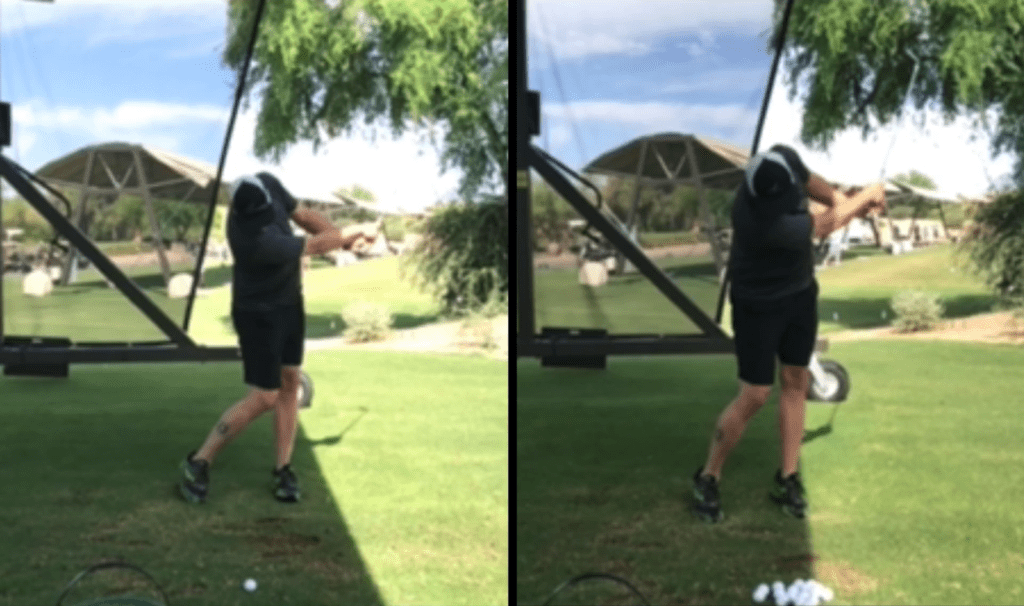
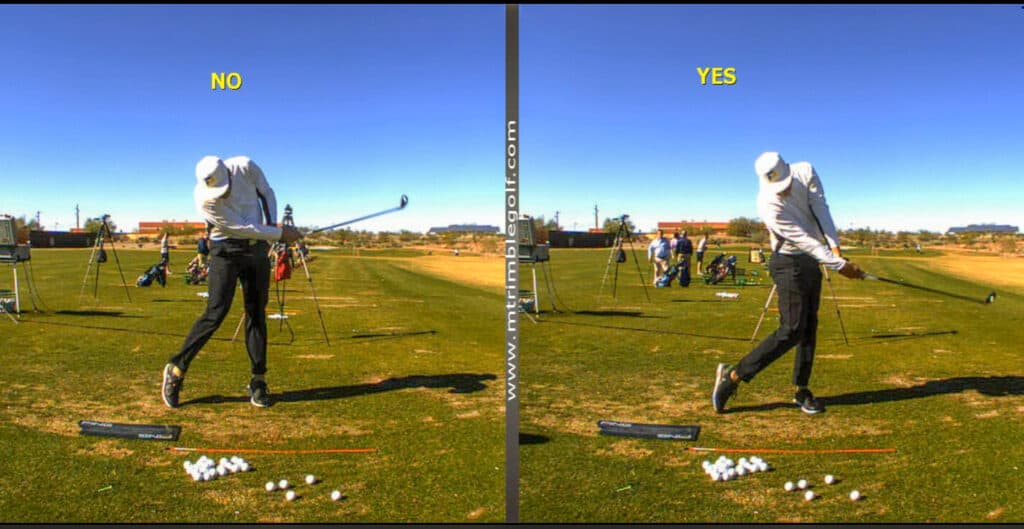
But won’t new golf clubs better my golf game? Golf companies want us to believe that buying new equipment will always make us better and in many cases, it will but in some cases, it will actually make you worse so here’s my take on it
If you have NOT been professionally fitted for your golf clubs, then go get fit BUT no golf club is going to fix a fundamental swing flaw.
Your results may vary but in my case, I have been fitted for my equipment, that’s not to say I can’t optimize and improve what I have but since back surgery, my first priority is my swing. Here’s another take on it, Want To Improve? Buy Lessons Not Clubs.
I resolve to practice with intention.
I have been a professional photographer for over 11 years now, and one quote I learned from the beginning was “Your First 10,000 photographs are your worst.” Henri Cartier-Bresson. Funny enough, I’d surpass that 10,000 mark every year as the official photographer of the Phoenix Open. In photography, we joke about the ‘Shoot and Pray Photographers” those photographers who shoot a thousand photos and pray they get some keepers. But I learned like a film photographer (yes kids, remember film?) A roll of film had 12, 24, or 36 shots and that actually cost you money (or time) to develop that film so you worked at making sure those shots counted. You didn’t want to waste money or time by taking crappy shots, so why would you do that with your golf game???
Since having back surgery, I have had to be more careful with how I practice and play golf. We’ve all heard the phrase ‘practice makes perfect.’ It’s been told to us in just about anything we’ve done ever since we were kids but don’t be this guy, “A golfer shows his hands after hitting 1,000 balls a day“
“Practice does not make perfect. Only perfect practice makes perfect.”
Vince Lombardi
This quote has always stood out to me and couldn’t be more true. But what does it mean as related to golf? You can practice all you want – hit a thousand golf balls at the range until your hands bleed or your arms fall off – but if you aren’t doing it right, every. single. time. then are you really getting anything out of it? No. What you’re doing is reinforcing bad habits that will actually work against you in your effort to reach your goal.
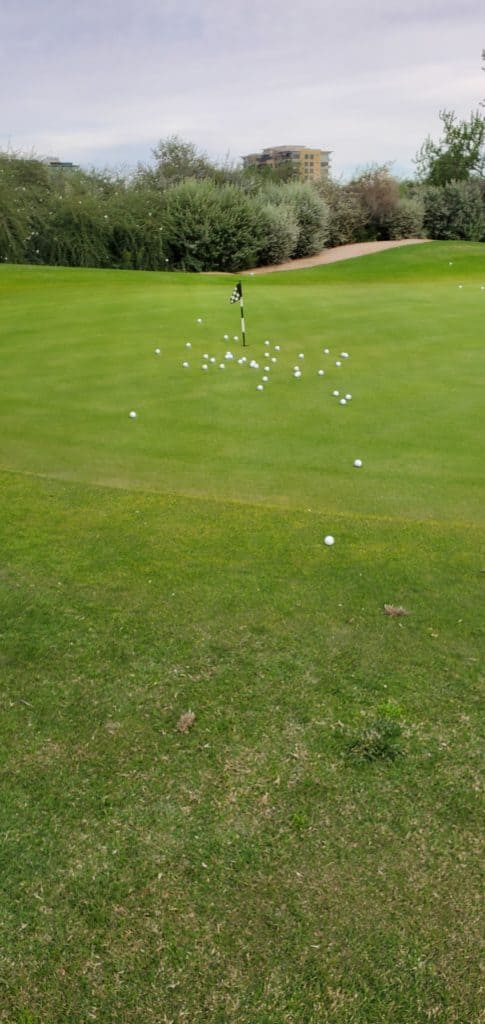
Think about it, you hit 10,000 golf balls but practice wrong, then that ONE time you need to hit the fairway with your driver or that ONE time you need to make that putt to win your club championship or that big bet with your friend, do you know which swing is going to show up? Is it the swing that you’ve practiced over and over and over? The one you practiced wrong all this time.
Perfect practice is truly the only way to make perfect. If you practice things perfectly by intentionally focusing on the basics, then you’ll see leaps and bounds more improvement in far less time than the person who takes the other approach. Take this mindset into your next practice session, your next day at work, whatever it is, and focus on doing everything as perfectly as possible. It won’t happen every time, and that’s ok. It’s this mindset that will reward you when you are under pressure and need it most.
If you can’t measure it, you can’t improve it.
I won’t know if I am getting better unless I measure my game regularly and repeatedly. Note: I’m kindofa nerd so this won’t be too difficult, it’ll actually be more difficult to not track too much data. If you don’t know Peter Drucker, you should: he’s known as the man who invented modern business management. He wrote 39 books on the subject and is widely regarded as the greatest management thinker of all time. Peter Drucker is credited with some of the most important quotes in business management, here’s one
“If you can’t measure it, you can’t improve it.”
Peter Drucker
When you think about this quote, it should immediately become apparent how true it is. Because, if you can’t measure something, and know the results, you can’t possibly get better at it. For example, it’s nearly impossible to lose weight without stepping on a scale once in a while to measure your results – if you don’t, you have no idea if you are succeeding or not.
Or it’s like trying to improve your golf game, but never keeping score, so you don’t know if you’re actually getting better or not. Makes sense, right? I’ll take that one step further and say, keeping score correctly! If you’re going to keep score, do it correctly (ok that did sound like a commandment huh?) You know what I’m talking about, the golfer who shanks a ball OB, drops another, flys it in the lake, drops a ball on the fairway, finally makes it on the green, three-putts, and says, “put me down for a bogey” What the actual F!? For this golfer in your life, I highly recommend they attend a golf rules seminar, the Arizona Golf Association puts these on regularly, and I’m sure your local association would have something similar. By the way, this is the same person that claims to drive it 300 but has 200 yards to the hole on a 400-yard par 4, but I digress.
I’m not that guy thankfully. I ended 2021 with a 15.2 handicap, not bad considering I just restarted playing after nearly ten years away from the game and from all the downtime I had with my back pain and surgery. I used to (there I go again) keep my scorecards and would track some stats but never really did much with it, other than to occasionally say “I should work on my long irons more” but now with a more focused approach to practicing, whether I’m at the range or on the course, I’ll track my scores, yardages, and stats all so that I can look at where I am improving and areas I need to work on.
So there you have it. Are you making any New Year’s Resolutions for your golf game???
Cover photo: Papago Golf Club in Phoenix, AZ


